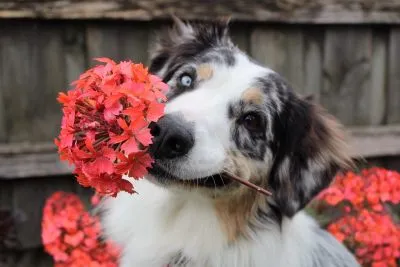Bark Talk
Five Common Poisonous Plants for Pets
As a popular form of decor, plants are often found throughout the interiors and exteriors of homes. But, as a pet owner, have you ever considered whether the plants in and around your home are pet-friendly?
It’s true that there are plants that are toxic to animals and effects on animals vary from gastrointestinal upset to death, but, it seems as though people are generally unaware that various plants can have harmful effects if eaten by your pets. With different degrees of toxicity, it’s important to know whether the plants in and around your house are potentially harmful to your pet.
Five Common Plants that are Seriously Poisonous to Pets:
1. Azalea
Toxic to both dogs and cats, if ingested--even just a few flowers or leaves--azaleas can cause vomiting, diarrhea, and potentially lead to cardiac arrest in animals.
2. Cyclamen
Cyclamen is a common indoor plant that you will often see in grocery stores. However, if your pet ingests this plant, particularly the roots of the plant, it can cause severe symptoms. Those symptoms include drooling, vomiting, and diarrhea. If a larger amount is ingested, symptoms include abnormal heart rate, seizures, and death.
3. Daffodils
Daffodils can be extremely toxic to pets. All parts of the plants are poisonous to plants and cause symptoms such as vomiting and diarrhea. However, the bulbs contain crystals that are especially harmful to pets. As diggers, dogs have the opportunity to come into contact with the bulbs which can lead to convulsions and cardiac irregularities.
4. Tulips and Hyacinths
Similar to daffodils, if any part of the plant is ingested, your pet may show symptoms such as vomiting, diarrhea, and increased drooling. However, the bulbs again are the most dangerous part of these plants for your pets. Chewing or ingesting the bulb can lead to increased heart rate and changes in your pet’s respiration.
5. Lilies
Lilies are poisonous to cats primarily, and, even the smallest ingestions can cause serious complications. Even the pollen from lilies or the water from the vase can cause kidney failure in cats.
The list above is a list of common household plants but is in no way a complete list. Visit Pet Poison Helpline’s Poison List for a complete list of poisonous plants.
If you suspect your pet has come into contact with a poisonous plant, contact Pet Poison Helpline* for expert help or contact your veterinarian immediately.
* A consultation fee may apply.
At Bark Central, we are committed to keeping your pet healthy and safe. Contact us today for information about our services!
